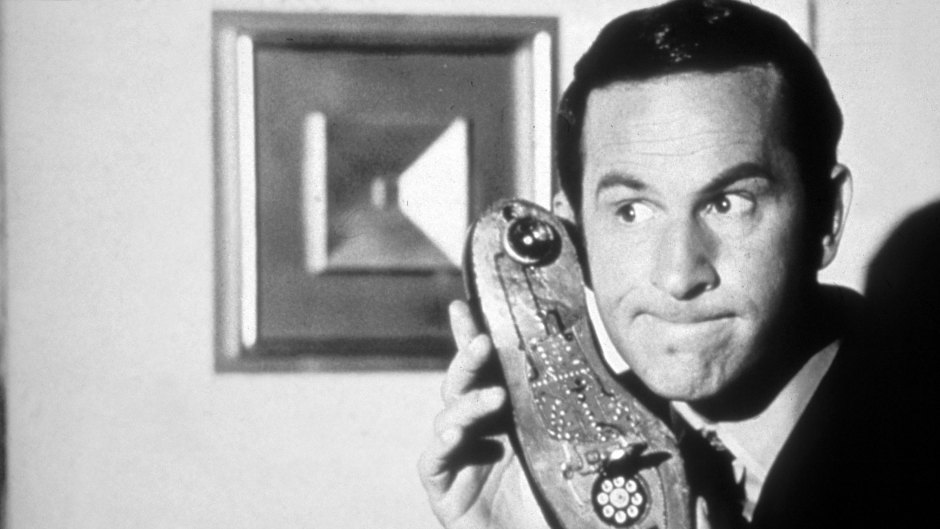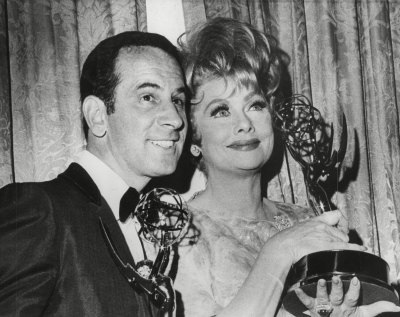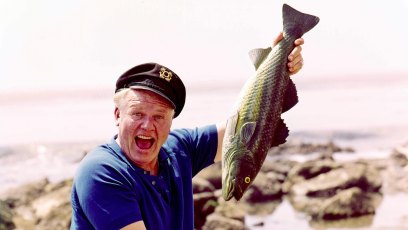
Moviestore/Shutterstock
Here’s What Happened to Don Adams Before, During and After ‘Get Smart’: ‘He Was a Very Complicated Man’
With the exception of The Beatles, there was nothing hotter in the 1960s than James Bond. Virtually everyone wanted to jump on the spy bandwagon, especially on television. There we got shows like The Man from U.N.C.L.E., The Wild Wild West and an actual parody — usually the last gasp of something rather than appearing in the midst of its popularity — in the form of Get Smart, starring comic Don Adams as secret agent Maxwell Smart.
The bumbling Smart, agent 86 for C.O.N.T.R.O.L., was imagined by series creators Buck Henry and Mel Brooks to be something of a love child of Bond and Peter Sellers’ Inspector Clouseau. It was Adams who brilliantly brought the character to life, earning himself three Primetime Emmy Awards doing so, and turning him — during the show’s 1965 to 1970 run — into a television superstar. At the same time, without his even realizing it, it also served to pretty much link him and Smart in the minds of viewers, casting directors and producers for the rest of his life, which certainly wasn’t the plan.

He was born Donald James Yarmy on April 13, 1923, in New York City. Dropping out of high school, he worked as a theatre usher and, during World War II, joined the United States Marine Corps, with which he fought in the Battle of Guadalcanal in 1942 in the Pacific Theater. Contracting a complication of Malaria known as blackwater fever — which was fatal more often than it wasn’t — he spent about a year in a Navy hospital in New Zealand. Once recovered, he served as Marine drill instructor (and, see, this is the problem with the Smart identification: can you imagine him shouting, “Alright, you worms, drop and give me 20” without thinking of that voice?).
After marrying actress Adelaide Efantis in 1947, he changed his stage name to Adams and began scoring work as a stand-up comic. “Don was tremendously ambitious,” offers pop culture historian, performer and author Geoffrey Mark, who had become friends with the actor late in his life and had been working on Don’s memoir at the time of his death. “He was also a very complicated man. He was good looking, which was unusual for comedy actors and comedians of his day. Being handsome was not a requirement to be a standup comic, but he was in good shape and handsome; not necessarily a leading man type. He had a sharp, inquisitive mind that was well-educated. He wanted to be a standup comedian and started breaking through in the late ‘50s, early ‘60s. He began making a name for himself in clubs like the Hungry I in San Francisco and The Duplex in New York. But what he needed was a point of view.”
Please scroll down for much more on Don Adams.

Moviestore/Shutterstock

NBCUniversal

Kobal/Shutterstock

NBCUniversal

NBCUniversal

AP/Shutterstock

Moviestore/Shutterstock

Moviestore/Shutterstock

Lorimar/Nbc-Tv/Kobal/Shutterstock

NBCUniversal

Abc/Kobal/Shutterstock

Lexington Broadcast Services Company

Lexington Broadcast Services Company

Fairchild Archive/Penske Media/Shutterstock

Tina Fineberg/AP/Shutterstock

Shutterstock

Charles Sykes/Shutterstock

Richard Shotwell/Invision/AP/Shutterstock

Moviestore/Shutterstock

Damian Dovarganes/AP/Shutterstock







































